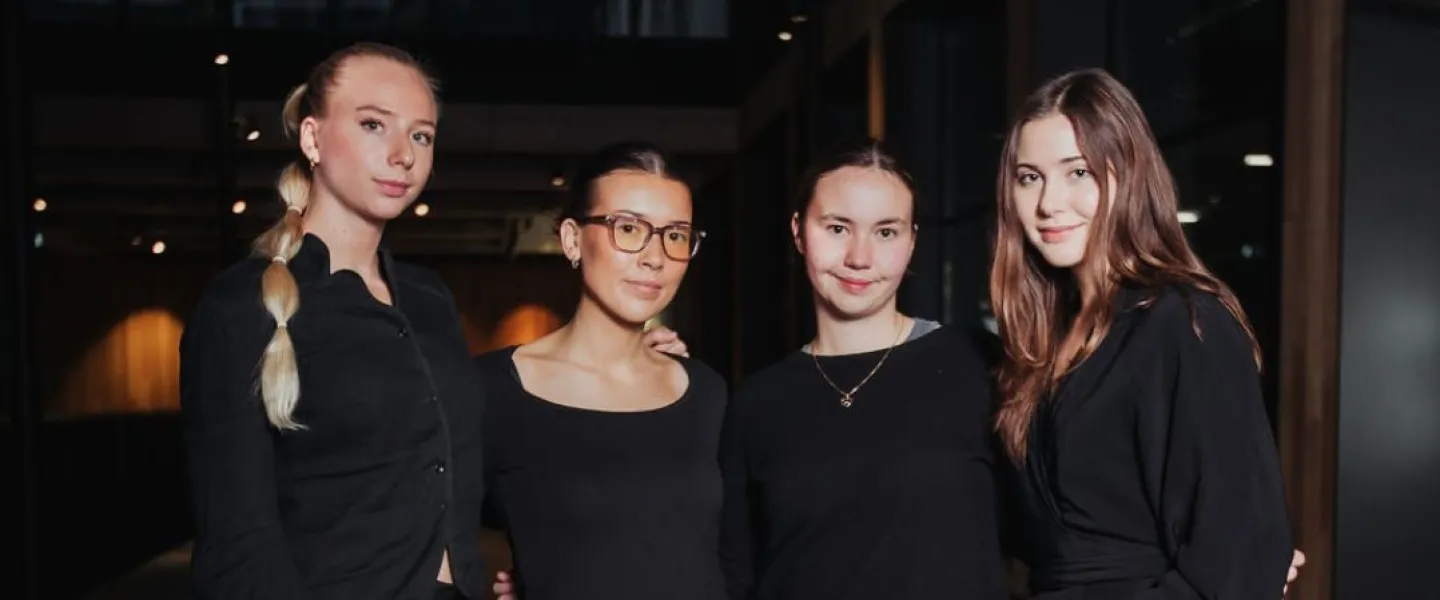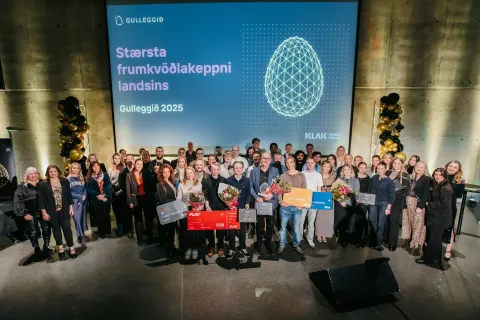
Four friends from secondary school, now studying at the University of Iceland and the Iceland University of the Arts, have joined forces to develop a game-based app aimed at speeding up the diagnosis of dementia. The project is an excellent example of how different academic disciplines can be combined to solve complex problems. The four women participated in Gulleggið, a competition for entrepreneurs, earlier this winter; an invaluable experience according to them.
The team consists of Júlía Sóley Gísladóttir, Fehima Líf Purisevic, Ingibjörg Sigurðardóttir, and Katla Rut Robertsdóttir Kluvers. “We knew about Gulleggið and wanted to take part, although we didn't have a specific idea at first. We met up for a brainstorming session and came up with several good ideas. We're friends from secondary school and now all study at either the University of Iceland or the Iceland University of the Arts—Fehima and I are in medicine, Júlía is in mechanical engineering, and Ingibjörg studies architecture at the University of the Arts. Júlía suggested building on a project she had worked on in engineering—a mobile app to accelerate dementia diagnosis. Fehima had also done her BS thesis in medicine on dementia, so it felt like a perfect fit for Gulleggið, combining medicine and engineering in the health tech space, which we were eager to explore,” says Katla.
Making cognitive health monitoring fun and accessible
Dementia is most often caused by neurodegenerative diseases, with Alzheimer’s being the most common. According to the Alzheimer’s Association, around 5,000–6,000 people in Iceland are living with dementia. Therefore, finding solutions that can benefit such a large group is of great importance. The team notes that there is currently a lot of exciting research happening in the field of dementia. New drugs are entering the market, and early diagnosis is becoming more realistic than ever.
“Our solution,Viti, is a cognitive stimulation game app that uses games and puzzles to help accelerate dementia diagnosis. Users play daily brain training games, and the results provide insights into cognitive health trends over time. The app will be based on a predictive model that compares current performance with past results to assess whether abnormal cognitive decline may be occurring. With regular use, the app can help identify early signs of dementia in a personalised way. With Viti, we want to empower individuals to monitor their cognitive health in a fun and accessible way, and we also hope the solution can be used to intervene earlier in the progression of dementia,” explains Júlía.
Although the app is still in its early stages, Júlía is currently working on a master’s thesis focused on building a predictive model that estimates an individual’s risk of developing Alzheimer’s in the future, partly by analysing performance in games and puzzles like those used in Viti. "It’s important that the games used in Viti can genuinely indicate cognitive decline. To confirm this, research must first be conducted to determine whether there is a real correlation between game performance and cognitive function,” Fehima points out.
The team notes that such correlations have already been demonstrated for various games, such as the well-known Memory and Solitaire. The predictive model can be further refined as the number of users grows. Once that process is underway, the possibilities are numerous; dementia is a growing global issue, and there is a pressing need for screening and early diagnostic tools. There are also significant advances in drug development for dementia, and a solution like ours could be useful in testing the effectiveness of such treatments,” says Katla.
